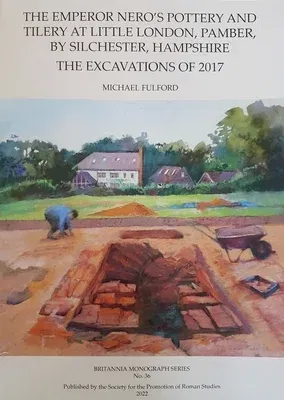Previously suspected on the basis of a tile stamped with the name and
titles of the Emperor Nero found alongside other brick and tile in the
ploughsoil, excavation of two tile kilns at Little London near
Silchester, Hampshire confirmed production during the reign of Nero. In
addition to the manufacture of standard bricks and roofing materials,
the kilns produced the more specialist materials required for building
bath houses. Work on the fabrics and distinctive, roller-stamped
flue-tiles show that products reached a wide variety of destinations
between Cirencester, some 100km to the north-west, and Chichester, on
the south coast, though Silchester appears to have been the main market
and is the only location where Nero-stamped tile has so far been found.
A suggestion is made linking the stamped tile to the visit to Britain by
the emperor's trusted freedman, Polyclitus in the aftermath of the
Boudican revolt. An unexpected discovery was the ancillary production
from at least three pottery kilns of a wide range of pre-Flavian
domestic wares, so far only identified in Silchester and its environs.
Alongside the publication of the kilns there are illustrated catalogues
of the complete range of brick and tile types produced as well as of the
pottery. Other reports include analysis of the fuels used and a suite of
radiocarbon dates which support the pottery evidence for production
ceasing in the early Flavian period. Analysis of the numerous animal
foot-impressions on the bricks presents one aspect of the environment of
the kilns.

